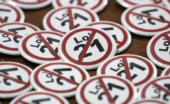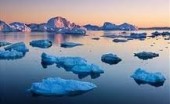Molly Minturn - My family is heartbroken to share that my father died in surgery on Monday, Feb. 10. It…
Wednesday Night #1964
Written by Diana Thebaud Nicholson // November 6, 2019 // Wednesday Nights // Comments Off on Wednesday Night #1964
The past week has been a worthy lead-up to Tuesday, 5 November when we remembered -if not celebrated- Guy Fawkes Day and the failure of the Gunpowder Plot.
Friday was John Bercow’s final day as Speaker and we can expect a different -probably not so entertaining- House of Commons ambiance with the election on Monday of Sir Lindsay Hoyle, who has promised ‘calm’. Parliament is now dissolved for the general election on 12 December.
‘Calm’ is not the prevailing condition in the rest of the world. On Friday, Chilean president Sebastian Pinera announced that Chile would not host the APEC summit or COP25 in view of continuing unrest.
Neighboring Bolivia is entering its third week of protests against the re-election of Evo Morales.
Protests continue unabated in Hong Kong, while Xi Jinping meets with Carrie Lam.
In Iraq and Lebanon Protests toppled two governments in three days, but the fight is only beginning
In Pakistan, protesters led by right-wing party Jamiat Ulema-e-Islam Fazi (Jui-F) have been camping in the capital since Thursday calling for PM Khan to step down. On the other hand, C Uday Bhaskar sounds a happy note in India-Pakistan religious diplomacy amid bilateral acrimony
Catalonia continues to be restive as Barcelona has been rocked by weeks of sometimes violent protests since nine separatist leaders were sentenced to jail in mid-October for their role in a failed independence bid.
The Washington Post offers a helpful analysis The numbers that help explain why protests are rocking countries around the world
While APEC 2019 has been outright cancelled (much to the frustration of the China-U.S. trade negotiations), The UN climate change talks (COP25) will be held Dec. 2-13, as originally planned, but in Madrid. Aside from stranding Greta Thunberg on the wrong side of the world, there are numerous logistical challenges and we understand that many NGOs will likely be hard-pressed to attend. In advance of the meeting, several new reports underscore the critical nature of the talks, e.g. More than 11,000 scientists from around the world declare a ‘climate emergency’ ; Ten facts about the economics of climate change and climate policy ; Climate change isn’t just about extreme weather. Entire ecosystems are collapsing.; along with the work of The Economics of Ecosystems and Biodiversity (TEEB).
On Friday, the U.S. House of Representatives approved a resolution that formalized the Impeachment Inquiry, Lawfare explains What’s in the House Resolution on Impeachment. [T]he resolution directs all six committees instructed by Speaker of the House Nancy Pelosi to participate in the inquiry—Intelligence, Financial Services, Foreign Affairs, Judiciary, Oversight and Reform, and Ways and Means—to “continue their ongoing investigations as part of the existing House of Representatives inquiry” However, “The resolution clearly puts the Intelligence Committee—and its chairman, Rep. Adam Schiff—in the driver’s seat for an initial set of public hearings. Schiff gets to call open hearings for purposes of the impeachment investigation, write a report including findings and recommendations for the Judiciary Committee, and make the report publicly available. He is firmly in the lead, though there is also a nod to the accompanying role played thus far by the committees on Foreign Affairs and Oversight and Reform, with which Schiff must consult in preparing the report.”
Impeachment Inquiry news was briefly overtaken by news of Tuesday’s off-year elections in which Democrats claimed an upset win in Kentucky over a Republican governor backed by President Donald Trump, and seized control of the state legislature in Virginia.
Meanwhile, there is lots of Canadian news. Seeking to alleviate the alienation of Alberta and Saskatchewan that elected no Liberals (and only one progressive), Justin Trudeau has tapped former Deputy PM Anne McLellan as an unpaid western adviser. Unexpected help should also come from the newly-formed Canadian Senators Group whose emphasis is on regional representation and small-c conservatism.
Let us hope that Ottawa will seriously consider the suggestions of Trevor Tombe, associate professor of economics at the University of Calgary and research fellow at the School of Public Policy, in his piece A new deal with Canada? How about a new deal FOR Canada.
The Alberta oil patch is suffering. Following the news that Encana is changing its name to Ovintia and moving its headquarters to the U.S., Calgary-based Houston Oil & Gas has entered receivership, closing its doors, leaving more than $80 million in estimated costs to clean up its remaining wells, pipelines and facilities.
Until Trudeau introduces his new Cabinet on 20 November, there will be continuous conjecture about who gets what portfolio. The only person on whom everyone seems to agree is indispensable Foreign Affairs minister Chrystia Freeland.
Elizabeth May is gracefully stepping down as leader of the Green Party, but fortunately, will remain as an MP.
Andrew Scheer meets the caucus today. Will it be a hero’s welcome – or a moment of reckoning?
The Globe & Mail editors suggest that It’s deeper than Andrew Scheer: The root of the Conservative Party’s failure to launch
Jeremy Kinsman and Larry Haas comment on China’s reopening of its market to Canadian pork and beef, but caution that diplomatic relations remain fraught thanks to the continuing detention of Huawei’s Meng Wanzhou. They also stressed the importance of Wednesday’s NAFTA talks in Ottawa with Richard Neal, chair of the U.S. House of Representatives ways and means committee.
Quebec’s CAQ government continues to outrage members of the Anglophone and immigrant communities (along with a number of urban Francophones) with its latest move to drastically limit delivery of government services in English Only Quebecers legally entitled to go to English school have right to be served in English, premier says
Julius Grey said the policy would give a false impression to immigrants that French is the only language in Quebec. “It’s also true that Montreal is a functionally bilingual city and we shouldn’t pretend it’s not,” he told CBC Montreal’s Daybreak. He said the “reprehensible” part of this is that the government is trying to divide people by creating this “historical Anglo community.”
The move would deprive people of the ability to fully understand what is going on in their interactions with the government, he said. And Carlos Leitão asked whether government workers will start asking people for a secret handshake that will identify people as a “real Anglo.”
Last week, we mocked Montreal Mayor Plante and other municipal nannies for postponing Thursday’s celebration of Halloween because of rain. As it turned out, Friday was not such a great alternative as it featured an autumn mega-storm with heavy rain and winds of up to 100 kilometres an hour. Some 1 million homes and businesses lost power, while there was serious flooding in some areas (See Apocalyptic Lennoxville Flood)
Good news
Why Didn’t She Get Alzheimer’s? The Answer Could Hold a Key to Fighting the Disease
For the many of us who have been disappointed by the failure of treatments in the fight against Alzheimer’s, there is a hopeful and credible report of New research [that] provides an answer, one that experts say could change the scientific understanding of Alzheimer’s disease and inspire new ideas about how to prevent and treat it.
Respite
At Quebec’s Reford Gardens, an arts-focused cultural centre blooms
Reford Gardens in Quebec is a place where ideas take root. Sometimes they take the form of birches or geraniums; other times, seesaws, pink flamingos or chain-link fence.
That’s because the gardens, in a village on the Gaspé Peninsula, are home to the International Garden Festival – a global hub for creative exploration in landscape architecture. Now the organization behind both is aiming for a broader role, making the gardens a cultural hub devoted to design and culinary arts – with a building project that will open up the site to new sorts of collaborations and residences.
Watch: ‘Opera vs Trump’ is the finest (and funniest) takedown of the US President.
Long Reads
Joseph Stiglitz: The End of Neoliberalism and the Rebirth of History
For 40 years, elites in rich and poor countries alike promised that neoliberal policies would lead to faster economic growth, and that the benefits would trickle down so that everyone, including the poorest, would be better off. Now that the evidence is in, is it any wonder that trust in elites and confidence in democracy have plummeted?
Jeremy Kinsman- Brexit: A Rationale, not a Defence
Is the Brexit saga part of a global populist trend? Or is it a political phenomenon specific to grievances felt in the British Isles? Brexit supporters do share some grievances felt by anti-establishment voters elsewhere, over immigration, and feeling left behind economically, especially in comparison to London elites.
But the primary driver is specifically British, or more accurately, English, individualism, enveloped in an over-arching cloak of “identity” — the gut feeling the English just aren’t European by history or social inclination.
In protests around the world, one image stands out: The Joker
(CNN) In cities around the world, among the sea of demonstrators who have taken to the streets, one image has stood out: the stark white face and creepy red grin of the Joker.
Artists in Lebanon and Iraq invoked the character on posters or edited him into images on social media.
Someone spray-painted “we are all clowns” onto a statue in Santiago, Chile.
And in Hong Kong, protesters dressed as the Joker as an act of protest in itself, defying a government ban on face masks and face coverings during public gatherings.



